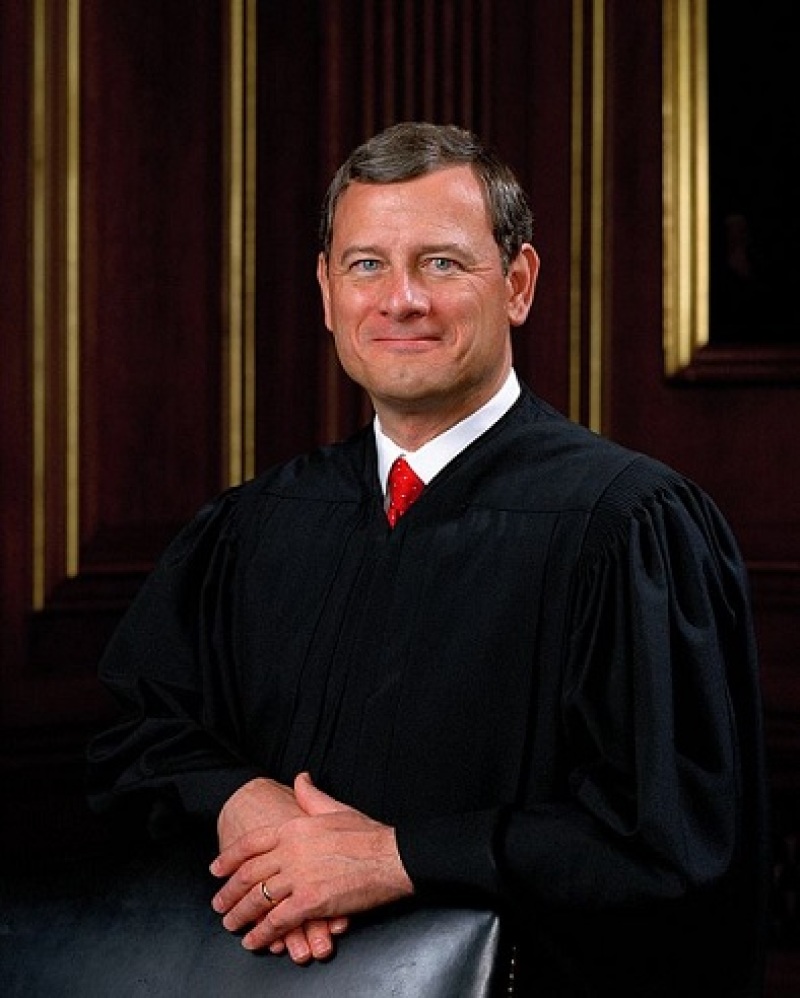
Chief Justice John Roberts reportedly was right in saying that legalizing same-sex marriage could lead to polygamy, which is now gaining support from Harvard Law School.
CBN News pointed out that in 2015 Roberts dissented to the Supreme Court decision that legalized same-sex marriage since it would lead to the legalization of plural marriages. Roberts was tagged as "wrong" by media outlets back then but his warnings are now shown to be correct.
CBN News cited Natasha Aggarwall who came to know about polyamory by working in the Harvard Law School LGBTQ+ Advocacy Clinic, which also happens to be one of the sponsors of the Polyamory Legal Advocacy Coalition (PLAC), and whose Founding Director Alexander Chen is one of the founding members.
"Although the majority randomly inserts the adjective 'two' in various places, it offers no reason at all why the two-person element of the core definition of marriage may be preserved while the man-woman element may not," CBN News quoted Roberts in his dissent on the said Supreme Court ruling.
"Indeed, from the standpoint of history and tradition, a leap from opposite-sex marriage to same-sex marriage is much greater than one from a two-person union to plural unions, which have deep roots in some cultures around the world. If the majority is willing to take the big leap, it is hard to see how it can say 'no' to the shorter one," he added.
Roberts, who received the ire of former President Donald Trump last December for rejecting the Texas lawsuit filed on the election fraud, is said to be one of the Supreme Court Justices who are "in the middle" when it comes to their decision making on pro-life matters. "Middle" judges or "more centrist conservatives" tend to decide based on "consensus" and the "equilibrium of public opinion." But being the head of the Supreme Court, Robert's influence has actually helped "rule in favor of religious organizations," especially on the matter of religious liberty, abortion, and same sex marriage.
Composed of legal and academic professionals, the Polyamory Legal Advocacy Coalition was newly set up "to advance the civil and human rights of polyamorous individuals, communities, and families through legislative advocacy, public policy, and public education." The Polyamory Legal Advocacy Coalition aims for "the end of discrimination based on relationship status" by giving "legal recognition of diverse relationship structures" since it is part of the "rights" of the "polyamorous individuals" involved in such relationships.
The PLAC is also supported by the Chosen Family Law Center, and the American Psychological Association Division 44 Committee on Consensual Non-Monogamy. The PLAC is currently "teaming up with local NorCal polyamorous groups" to advance polyamorous legislation in Northern California after helping "pass polyamorous domestic partnership ordinances in Somerville, Cambridge, and Arlington, MA."
"Ordinances protecting workplace and housing discrimination improve the lives in the lives of those engaged in CNM by helping provide many CNM individuals with a sense of validation and recognition, thereby helping to reduce many of the negative mental and physical health consequences of CNM stigma," PLAC said in their website FAQs.
"These ordinances may also prevent future discrimination, broadly validate CNM relationships, and normalize the adoption of similar ordinances across the United States and around the world," they added.
Chen pointed out in an interview with Harvard Law Today that the legalization of polyamourus relationships in Boston's Somerville in 2020 was a breakthrough in the "political and "legislative realms" that brought "excitement" to those who belong to the polyamorous community. Chen said that people in this relationship are "just trying to love" and should be given the freedom to choose the type of structure they would like to have for their families.
"The slippery slope argument is never compelling to me. It has been used so often to deny rights that we should have granted. When we were talking about universal suffrage, some said, 'What's next, women voting?' One of the slogans of the marriage equality movement was 'love is love', and that's the overwhelming feeling I've gotten, that people are just trying to love and support each other and have families and live their lives," he said.






















